
Buying a home in South Africa is a major financial step that requires careful preparation, reliable information, and a clear understanding of the process. For many South Africans, owning property offers long-term financial security and stability, but navigating the homebuying process can be complex without proper guidance. From checking your credit profile to securing finance and understanding legal requirements, each stage demands attention.
Key Takeaways
- Strong Credit Score and Deposit Boost Approval: A credit score above 680 and a deposit of 10% or more can significantly improve your chances of home loan approval and may result in better interest rates.
- Bond Originators Help Streamline the Process: Bond originators offer free assistance by applying to multiple banks on your behalf, increasing access to competitive offers, reducing paperwork, and speeding up approval times.
- Budget for Hidden Costs and Inspections: Buyers must account for extra expenses such as transfer duties, legal fees, and home inspections to avoid financial surprises during the property transfer process.
About Arcadia Finance
Apply for a loan with ease through Arcadia Finance. There are no application fees, and you can choose from 19 trusted lenders registered with South Africa’s National Credit Regulator. Enjoy a smooth process and secure financial solutions tailored to you.
The South African Property Market
South Africa’s housing sector continues to face economic pressure, with inflation and post-pandemic recovery still influencing the market. Despite these challenges, 2025 has seen gradual price growth in several regions, with notable shifts in buyer demographics and urban hotspots.
Recent data shows that national residential property prices rose by 5.2% year-on-year in January 2025, building on a 5.1% increase at the end of 2024. Average monthly growth stands at 0.4%, with Limpopo (6.82%), Western Cape (5.67%), and Gauteng (2.17%) showing the strongest annual gains. In metropolitan areas, Cape Town leads the surge with an 8.5% rise, while Johannesburg remains steady at 2.3%. On average, properties continue to sell within eight weeks of listing, though time on the market varies widely by location.
The property market in South Africa still offers a diverse selection of homes across several price categories. The Centre for Affordable Housing Finance (CAHF) outlines five key segments:
- Entry-level properties (R300 000 or less): approximately 2.1 million units (32%)
- Affordable homes (R300 000 to R600 000): around 1.4 million units (21%)
- Conventional homes (R600 000 to R900 000): close to 1.1 million units (16%)
- Higher-end properties (R900 000 to R1.2 million): about 654 000 units (10%)
- Luxury homes (over R1.2 million): roughly 1.4 million units (21%)
These segments remain a useful guide to price brackets, although actual prices vary widely depending on the city or neighbourhood in question.
In addition to the purchase price, general living expenses play a critical role in home-buying decisions. Cities with the highest cost of living include Cape Town, Johannesburg, Pretoria, and Durban, with Cape Town showing the steepest increases. By early 2025, average property prices in the city reached R2.23 million, with significant growth in suburbs such as Kalk Bay and Scarborough.
Not all home loans are created equal. If you’re planning to buy or build, this guide on Building Loan vs. Home Loan? breaks down your options clearly, helping you take the right financial step towards owning your home.

Key Terms When Buying A Home
When going through the home buying process, it is important to understand several common terms used during property transactions. Below is a straightforward explanation of key terms every South African buyer should know:
- Home Loan: A loan granted by a bank or financial provider to fund the purchase of a property. The amount borrowed is paid back with interest over a fixed period.
- Credit Check: A review of your credit profile by the lender to assess whether you are a suitable candidate for a loan. This is used to determine your risk level and borrowing eligibility.
- Affordability: Refers to the house price you can afford based on your monthly income and current debts. In most cases, your loan eligibility is limited to around 30 percent of your total verifiable household income.
- Estimated Monthly Repayment: The projected monthly cost of your home loan. This includes both the amount borrowed and the interest charged over the repayment period.
- Loan Repayments: These are scheduled payments (usually every month) that reduce your loan balance and cover the interest owed. The full loan must be repaid within the agreed time.
- Deposit: The initial payment made directly to the seller when purchasing a property. It is not part of the financed amount and usually represents a percentage of the sale price. Paying a deposit lowers the amount you need to borrow.
- Transfer Duty: A government-imposed tax on the transfer of property from one owner to another. The amount varies based on the value of the property and only applies to purchases above a certain threshold.
- Loan Term: The period agreed with the lender over which the loan must be repaid. It is typically measured in years, such as 20 or 30 years.
- Pre-Qualified: A preliminary assessment by the lender to estimate how much you might be able to borrow. This is not an approval but gives you a guideline before you apply formally.
- Sale Agreement: A legally binding contract between the buyer and seller that outlines all agreed terms of the property sale. It includes the purchase price, timeframes, and any special conditions.
Requirements For Buying A House In South Africa
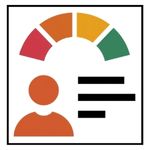
A Good Credit Record
Banks use your credit score to assess how risky it is to lend to you. It is a key factor in determining if your home loan will be approved.
Your credit score is based on your financial history, including income, repayment behaviour, and current debt levels. Scores range from 000 to 999, with anything above 680 generally acceptable.
A lower score reduces your approval chances, but you can improve it by paying off debt, settling overdue accounts, and limiting new credit applications.
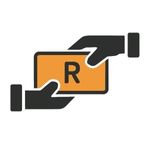
A Deposit
Some banks may offer a 100% home loan, but many sellers still require a 10% deposit in the Offer to Purchase.
A larger deposit improves approval odds and may result in a lower interest rate. It also shows the seller that you’re serious about the purchase.
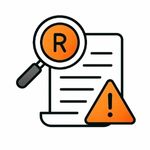
Prequalification Certificate (Optional)
A prequalification certificate is not mandatory, but it helps you understand what you can afford and shows estate agents that you’re financially prepared. It includes a credit check and affordability review, and is valid for 90 days.
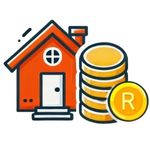
A Home Loan
A home loan is funding from a bank to buy a property. Approval depends on your credit score, deposit, and repayment ability.
Once approved, you repay the loan monthly with interest. The interest rate affects the total cost of the loan. Your credit score and deposit influence your interest rate. Using a home loan comparison service may help you find a better deal by applying to multiple banks.
Monthly instalments depend on the loan term and interest rate. Most bonds run for 20 or 30 years, though shorter options exist.
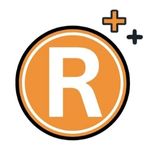
Money Set Aside For Hidden Costs
Beyond the home loan, buyers must cover legal and administrative fees linked to the property transfer.
The process takes around three months and involves several attorneys. Costs include bond registration, transfer fees, and transfer duty for homes over R1 000 000.
Boost your buying power by exploring smart ways to structure your deposit. Our clear guide on Deposit on a home loan shows you how to negotiate smaller upfront costs and stretch your budget further, so you can take that giant leap from saving to signing in record time.

Steps To Buying A Home In South Africa
1. Review Your Financial Position
Start by carefully examining your current financial situation. Calculate your monthly income, total savings, and existing expenses to work out what you can reasonably afford to pay every month on a bond.
Keep in mind that monthly repayments are not the only costs. You will also need to budget for municipal charges, insurance for your property, and life cover if required by your lender.
Because the bank holds your home as collateral, you must ensure that the property is insured throughout the term of the bond. This typically includes cover for:
- The permanent structure of your home, including fixtures such as pools
- Fire, lightning, flood, and storm damage
- The replacement value of the home
It may be useful to speak with a financial advisor to check that you fully understand your affordability range.
2. Check Your Credit Score
Use an online platform to access your free credit report and ensure your score is above 680, as this is often the minimum requirement for home loan approval. If your score is below this, take steps to improve it.
Responsible use of credit products, such as mobile contracts or store cards, can improve your score. However, missing payments or consistently paying late will negatively affect it. Pay on time and avoid overextending your credit exposure to keep your score in good shape.
3. Secure Finance For Your Purchase
If you are not buying the home in cash, you will need to apply for a home loan. This can be done through your bank or with the help of a bond originator. Compare offerings from several lenders to find competitive rates and suitable terms.
Avoid applying only at your main bank. Every lender uses its own risk model and approval criteria, regardless of whether you are an existing customer.
Getting a pre-approval letter can strengthen your position with sellers, showing that you are serious and financially prepared.
4. Begin Your Property Search
Before starting, determine the property type and size that best suits your needs. Consider factors such as access to transport, proximity to work, nearby schools, and essential amenities.
Once your budget and pre-approval are sorted, begin searching. Use online listings, talk to estate agents, and visit neighbourhoods of interest to see what is available.
Speak to an agent about areas with potential for value growth, even if they are not currently the most popular. List the homes you want to visit and separate the must-haves from the nice-to-haves.
5. Attend Property Viewings
Arrange viewings for the properties on your list. When inspecting, assess the condition, layout, and any visible signs of repair needs. Also consider location benefits, such as schools and shopping centres nearby.
Look at homes within a range of about 10% higher and lower than your budget. This provides a clearer view of pricing in your chosen area and may allow you to negotiate on price.
Work with your estate agent to ensure your viewing list remains manageable.
6. Submit An Offer
Once you’ve found a property that meets your requirements, prepare a formal written offer. This will be submitted to the seller or agent and should include terms such as the price, deposit amount, and any special conditions.
Avoid offering above market value, as banks may not finance the full amount.
The Offer to Purchase (OTP) sets out the agreed price and sale terms. Once signed by both parties, it is legally binding.
7. Arrange A Property Inspection
Before committing to the sale, hire a qualified inspector to check for structural issues, pest activity, or other hidden problems.
This helps protect you from unexpected costs later on. Understand the difference between latent defects (hidden) and patent defects (visible), and ask questions about both.
The seller is required to complete a disclosure form stating known issues. However, this form reflects only what the seller is aware of, not necessarily everything wrong with the property.
8. Finalise Your Bond Application
After your offer is accepted, continue working with your lender to complete the home loan process. Submit required documents such as your ID, proof of income, and bank statements.
The bank will evaluate the property’s value and, once satisfied, issue the final loan agreement.
9. Property Transfer And Registration
A conveyancer is usually appointed by the seller, but since the buyer pays the fee, you may request to use a conveyancer of your choice. This can be arranged through discussion with your agent or the seller.
The conveyancer manages the legal and administrative tasks, including the transfer duty, bond registration, and registration of ownership at the Deeds Office.
Once completed, the home is officially registered in your name.

What Does a Bond Originator Do?
A bond originator acts as a middleman between a prospective homebuyer and several banks or lending institutions. Their main responsibility is to help you with your home loan application by collecting all required documents, submitting them to multiple lenders, and then comparing the results. This means you avoid the hassle of contacting each bank on your own.
How Can a Bond Originator Assist You?
- Access To Multiple Offers: Bond originators have working arrangements with a range of banks and lenders, allowing them to submit your application to several financial institutions at once. This improves your chances of receiving competitive interest rates and more suitable loan conditions.
- Expert Advice: They offer informed guidance on home loan matters, such as repayment structures, interest rate types, and any additional charges. This support ensures that you understand the details of each offer, making it easier to compare your options clearly.
- Convenience: Using a bond originator usually comes at no direct cost to the buyer, as they are paid a commission by the bank after the loan is approved. This makes it a budget-friendly solution for managing the application process.
- Negotiation Power: With a good understanding of the housing finance market, bond originators are often able to negotiate improved loan terms on your behalf. These negotiations could result in lower administrative costs or a reduced interest rate.
- Speed And Efficiency: Since the bond originator manages the process from beginning to end, the loan application and approval process is often quicker and more organised. This can be especially helpful in a competitive housing market where timing is important.
Conclusion
Buying a home in South Africa involves several key steps, from reviewing your finances and securing a home loan to understanding legal processes and budgeting for hidden costs. With the right preparation, including a strong credit score, a reasonable deposit, and the use of tools like bond originators, the process becomes far more manageable. By staying informed, comparing loan options, and working with reliable professionals, prospective buyers can navigate the property market with greater confidence and secure a home that fits both their needs and budget.
Frequently Asked Questions
Most banks prefer a credit score of 680 or higher. A lower score may still be considered, but could lead to less favourable loan terms or a declined application.
Some lenders offer 100% home loans, but this depends on your financial profile. Many sellers still expect a 10% deposit as part of the Offer to Purchase.
Beyond the loan amount, buyers must pay transfer duty (if applicable), bond registration fees, attorney costs, and possibly inspection fees. These can add up to a significant amount.
On average, the property transfer and registration process takes about 8 to 12 weeks, depending on document readiness and Deeds Office processing times.
A bond originator submits your application to multiple banks, helping you compare offers and potentially access better rates. Their services are free to buyers, making them a useful option.
Fast, uncomplicated, and trustworthy loan comparisons
At Arcadia Finance, you can compare loan offers from multiple lenders with no obligation and free of charge. Get a clear overview of your options and choose the best deal for you.
Fill out our form today to easily compare interest rates from 19 banks and find the right loan for you.



